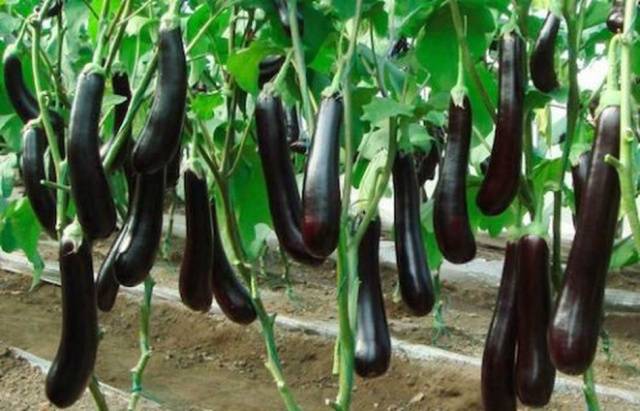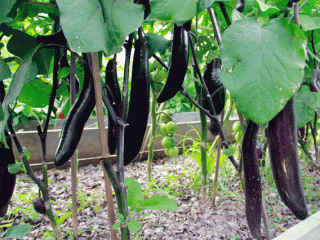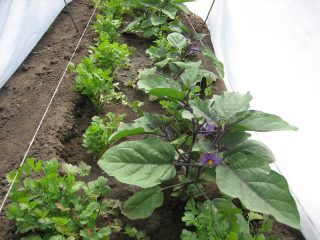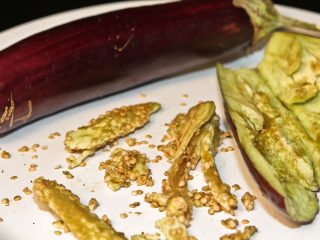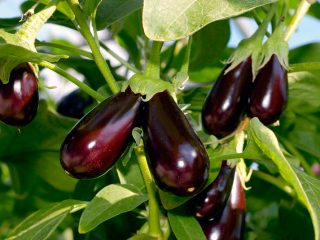Eggplant as a vegetable crop has been cultivated by humans for the 15th century. This healthy and vitamin-rich vegetable is native to Asian countries, in particular India. Today, eggplant is very popular among gardeners. It is rightfully called the longevity vegetable. One of the brightest representatives of the nightshade family is the Marathon eggplant.
Description
The Marathon eggplant variety belongs to the early maturing. The period of full ripening of fruits from the moment of germination is 100-110 days. Seedlings of this variety can be grown both in open ground and in “covering” or “warm” beds. The adult plant is semi-sprawling, rather tall.
The fruits, as you can see in the photo, are elongated, have a cylindrical shape, painted in a deep dark purple color. The weight of one single fruit during the period of biological maturity is 400-600 grams.
The pulp of a mature vegetable is white, fleshy, without the bitter taste characteristic of eggplant.
The yield of the variety is high. From one square meter of area, you can collect from 5.2 to 5.7 kilograms of vegetables.
In cooking, this variety of eggplant has a fairly wide application. The fruits of the "Marathon" are ideal for preparing caviar, as well as salads, main courses and seaming for the winter.
Growing and care
Eggplant seeds "Marathon" are sown in the soil in the last decade of February, early March. After the appearance of at least two true leaves on the plant, a pick is made. Seedlings are planted under the film in mid-May. Landing directly on the garden is carried out in the first ten days of June. At the end of July, 4-5 of the largest ovaries are left on the plant, the rest are removed so that they do not interfere with the further growth and development of fruits.
Caring for eggplant bushes, according to most gardeners, is very simple and consists only in regular watering, fertilization, loosening the soil and pinching.
You can discover the main secrets of growing eggplant by watching the video below:
Benefits of the variety
Eggplant "Marathon" has a number of advantages. The most striking of them are:
- unpretentious care and cultivation;
- good yield;
- excellent taste of fruits, lack of bitterness;
- low calorie content and rich in vitamins A and B, potassium.
It should be remembered that eating fruits that have been on the bush for a long time and have already reached the phase of biological maturity is not worth it, since they accumulate harmful substances that negatively affect digestion and the body as a whole.
